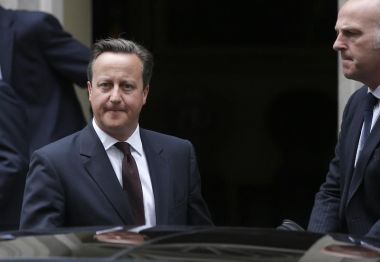Our greatest defence against Islamist extremism is free speech

A month ago on Sunday, death and horror were brought to the streets of Paris. Last Wednesday, California witnessed its deadliest mass shooting in over 30 years. And on Sunday, there was a knife attack in Leytonstone tube station. Each attack has been officially labelled as terrorism, and each is linked to ISIL/Daesh, either officially or in the minds of the attackers. Our enemy, perhaps more than ever, is within the gates.
It is clear that our response must not only be to restrict the physical means of violent extremism – the bombs and bullets – but to stop the spread of the poisonous ideology that animates it. One answer, tempting in its simplicity and strength, is to starve them of the oxygen of publicity, leaving them marginalised and irrelevant.
But this strategy is fatally flawed. Islamist extremism and neo-Nazism, also on the rise, are ideologies which thrive on marginalisation: either that 'true Islam' is being marginalised by Western institutions and the more liberal majority of Muslims; or that white British people, especially the working class, are being marginalised by immigrants and a weak, complicit state.
What we must deny these extremists is the oxygen of marginalisation and censorship. These ideologies are spreading, whether we like it or not, and they can only be countered by head-on engagement. The government's new Counter-Extremism Strategy says that radicalisation often happens when 'a vulnerable person will be introduced to an extremist ideology by a radicalising influencer (typically an extremist individual) who in the absence of protective factors, such as a supporting network of family and friends, or a fulfilling job, draws the vulnerable individual ever closer to extremism.' We therefore do a disservice to such vulnerable, often young, individuals if we do not give them the tools to reject Islamist extremism by taking on its ideology in public. Like countless violent ideologies throughout history that relied on a narrative of marginalisation, we must bring islamist extremism and neo-Nazi nationalism out into the light and air of public debate and scrutiny in which it cannot survive.
Unfortunately, the government's strong and well-meaning response undermines any such effort in its first paragraph.
The Strategy, which outlines the government's wide-ranging counter-extremist policies for the coming Parliament, is a well-researched document, which highlights some disturbing traditions and trends taking hold in parts of UK society. Its analysis and prescription, however, leave much to be desired. Significant new powers are promised in this document, and others, such as Extremism Disruption Orders (EDOs) and Extremism Banning Orders (EBOs), are in the pipeline. How these powers are used rests on a simple question: what is our target? The foundation of any Counter-Extremism Strategy must be a clear and specific understanding of the extremism we are countering. If local authorities are to withdraw funding and premises from groups promoting extremism, if universities are to tackle speakers who promote extremism, if schools are going to target teaching and governors who promote extremism, then we need to know what extremism is and isn't.
The Strategy, however, opens with a definition of extremism which is disturbingly broad – even wrong. The government's definition of extremism is: 'The vocal or active opposition to fundamental British Values, including democracy, rule of law, individual liberty and respect for different beliefs and faiths.'
Yet, the whole point of the Strategy is to oppose certain 'beliefs and faiths'! The government has been inconsistent on this definition, and actually gets it right in its guidance to maintained schools, published a year ago, where it instead uses the phrase 'mutual respect and tolerance of those with different faiths and beliefs.' [my underlining] This is the heart of a free, diverse and safe society. We respect and value everyone, and we utterly reject and oppose ideologies that would endanger them.
The Strategy's definition is an ivory-tower, pluralist approach which supposes we should all respect all beliefs. This is wrong. Hindus can love and cherish their neighbours without respecting Islam, Christianity, socialism or whatever beliefs their neighbours hold. I respect and value my neighbours but I do not respect scientology, or the caste system, or xenophobia. If we are to have a strong, plural society, we need to accept that people really believe things, and believe them over and against other things. A plural society is not a society of pluralists. Silencing those with deep religious, or other, beliefs creates marginalisation and fear. This is the core of a weak and insecure society. Tolerance and trust only thrive where there is strong respect despite strong disagreement. But with this definition of extremism, it is little wonder that many Christians and Muslims have already complained that the Strategy will marginalise them. And as the Strategy itself argues: marginalisation often fosters radicalisation.
Our attacks on extremism need to be targeted. When we launch air strikes on the Taliban, Al-Qaeda or ISIS, it is a high priority to ensure that we kill the target, without unnecessarily causing damage or death to innocents around them. Every time we fail to do that, we help to win more converts to the other side. The same is true of our attacks on the ideology of Islamist extremism. Every time our attacks are too vague, and end up criminalising or marginalising moderate Muslims or those of other faiths, we help win converts to destructive ideology.
The Strategy brings to light some horrifying examples of extremism in the UK. The government's response must keep them in the light, and defeat this extremism using the power that is free speech, debate and criticism in a diverse society.
Johnny Monro works as a researcher in Parliament.











